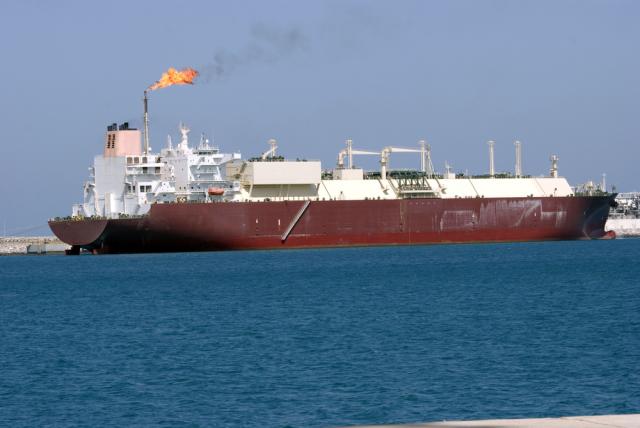The natural gas industry’s favorite public relations ploy about the necessity of hydraulic fracturing (fracking), the process through which “clean natural gas” is now procured, is that the patriotic gas industry is championing the shale gas boom for domestic consumption and for “national security purposes.” We now know definitively that this is pure propaganda.
Enter the smoking gun, a 20-year $8 billion agreement signed between BG Group, short for British Gas Group, and Houston-based Cheniere Energy.
The deal calls for BG Gas to export liquefied natural gas, or LNG (natural gas that has been converted temporarily to liquid form for ease of storage or transport), from Cheniere’s Sabine Pass LNG export terminal, located on the Gulf Coast in Louisiana, out to the highly profitable global market, chiefly in Asia and Europe.
Reuters referred to the deal as “a new chapter in the shale gas revolution that has redefined global markets.”
The Wall Street Journal reports that BG is thrilled that it will now be able to “buy gas comparatively cheaply and sell it for much higher prices in Europe and Asia.” The deal is just the beginning of a huge industry rush to export U.S. gas, according to the paper:
Energy companies in the U.S., Canada and Australia are planning or have already begun building more than a dozen projects to liquefy and export natural gas as they seek to capitalize on growing demand for liquid-gas imports. Asia is the hottest market: its demand for liquefied gas is expected to grow 68% between 2010 and 2020, according to advisory firm Poten & Partners.
Originally built as an import terminal in 2008, Cheniere transformed the Sabine Pass terminal to enable exports when it realized the big money was in the overseas market, a decision that made serious waves in the natural gas industry, as the New York Times noted in January 2011.
Though it is now set for a 20-year agreement, “a potential 10 year extension” is included in the deal, according to Reuters.
The joint BG Group/Cheniere press release announcing the deal stated that next in the works is a deal between BG Group and Panhandle Energy to export gas from one of Panhandle’s key LNG export terminals, the Lake Charles LNG export terminal, also located on the Louisiana Gulf Coast.
A contributor to Seeking Alpha, a key player in the business blogosphere, appropriately said of the deal, “This is the start of a new age where the U.S. will begin exporting natural gas across the globe.”
In other words, this is a totally different story than what the industry has told Americans about “home grown” “domestic” energy.
Little did the residents of the rural U.S. communities know, when the gas industry rolled into their communities a few years ago to frack and drill their land – from the sand mines of Chippewa Falls, WI to the drilling rigs of Dimock, PA – that they were simply pawns in the industry’s larger plan to export this shale gas to overseas markets.
Expect many more announcements of the sort to transpire over the coming weeks, months, and years, particularly on the Gulf Coast, but also in places like the Dominion Cove Point LNG export terminal in Maryland, the Jordan Cove LNG export terminal in Oregon, and the Kitimat LNG export terminal located in northwest Canada.
Canada faces the same about-face from its gas industry. Earlier this month, Canadian regulators approved export requests allowing Apache Corp., Encana Corp. and EOG Resources Inc. to export LNG from British Columbia to Asia.
Bloomberg Businessweek reports today that Royal Dutch Shell also plans to develop a British Columbia terminal to potentially export LNG to Asia in partnership with PetroChina Co. and Japanese and South Korean partners.
So are we to expect that industry front groups like “America’s Natural Gas Alliance” will now honestly discuss the fact that their claims to be patriotic champions of “domestic energy” and promoters of “U.S. energy security” are bogus?
Not likely.
Image credit: Gustav/Shutterstock.
Subscribe to our newsletter
Stay up to date with DeSmog news and alerts







